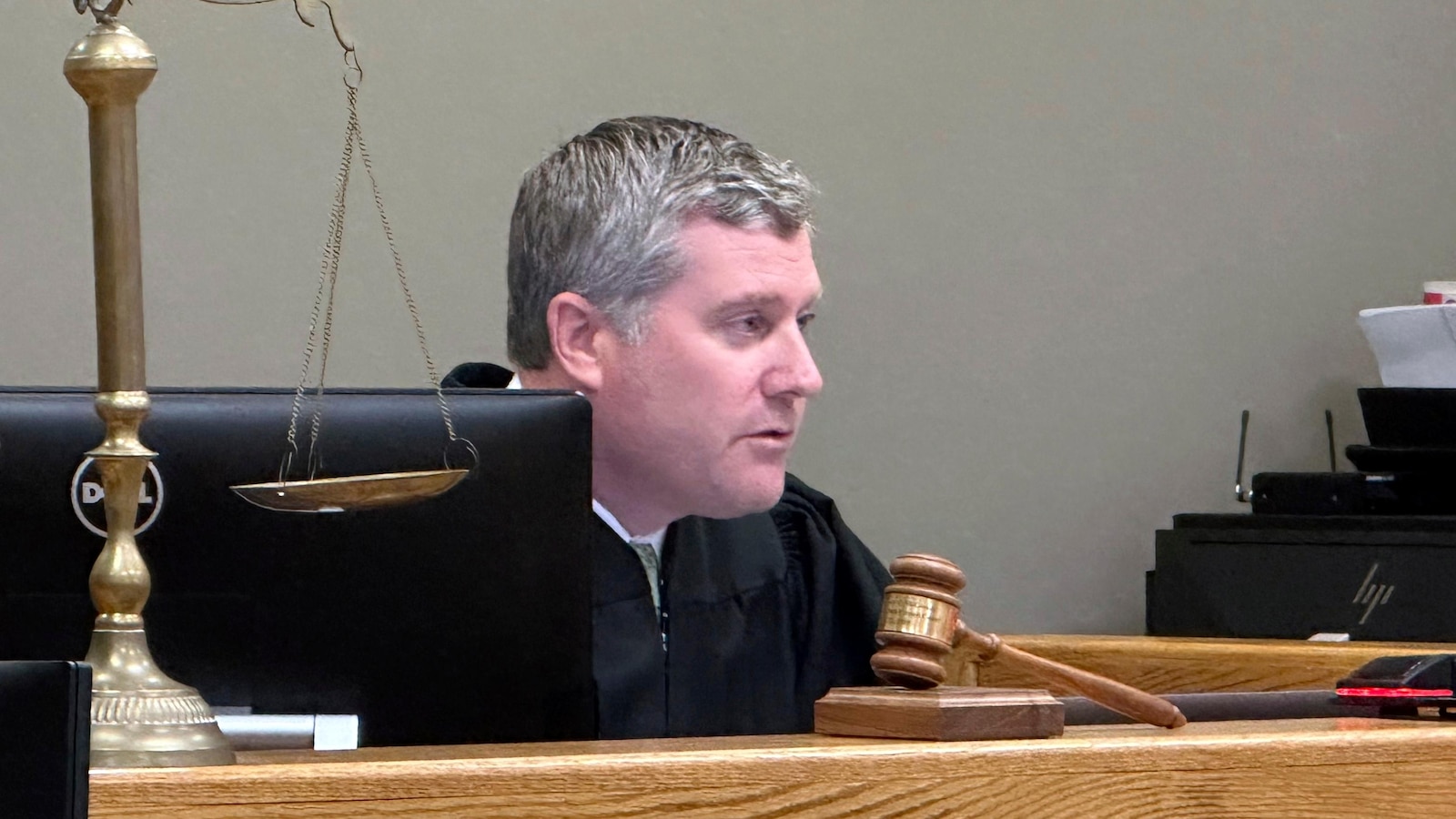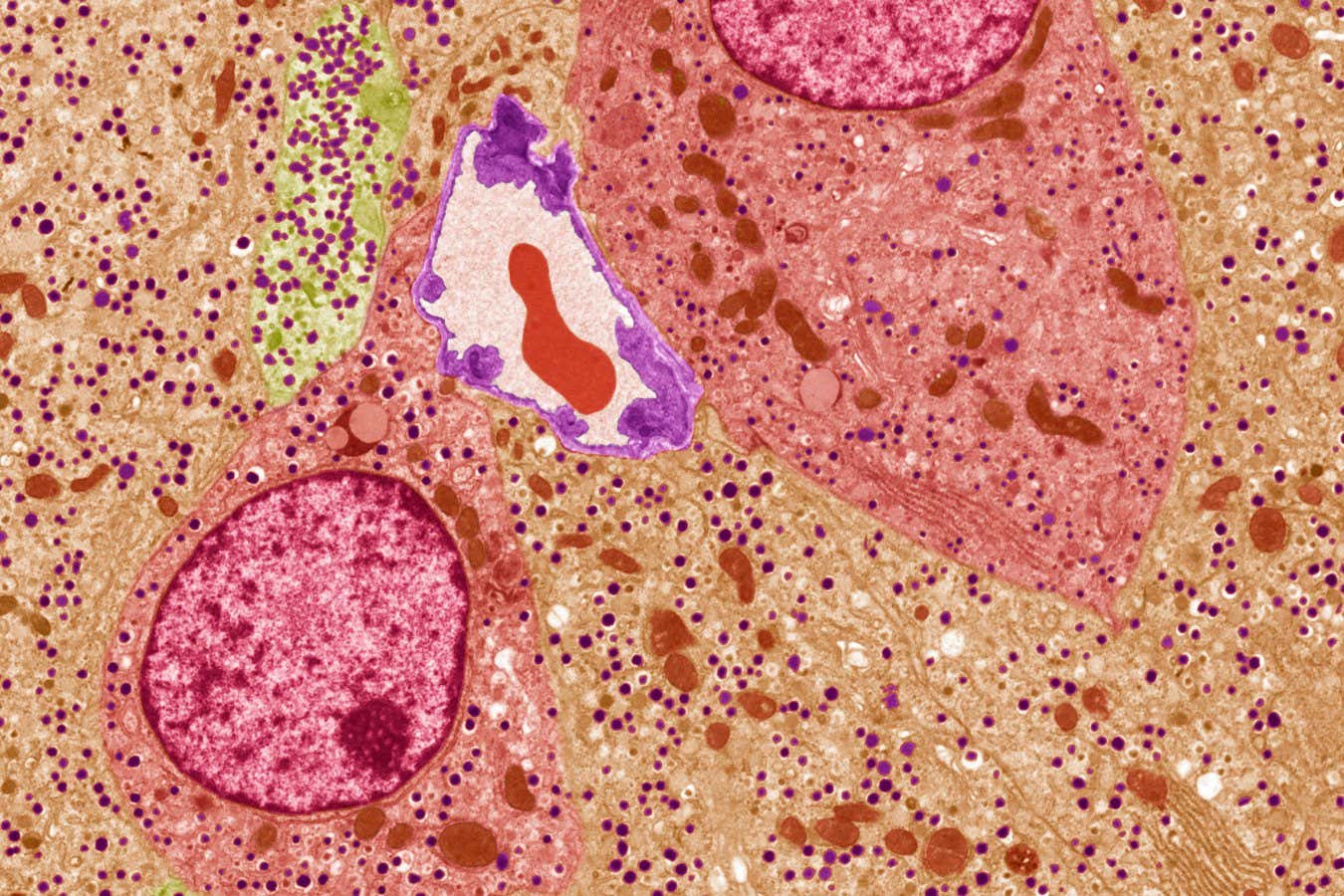
HOWELL, Mich. — A Michigan judge sentenced the former executive of a specialty pharmacy to at least 10 years in prison Friday for the deaths of 11 people who were injected with tainted pain medication, part of a meningitis outbreak that affected hundreds across the U.S. in 2012.
Barry Cadden’s sentence for involuntary manslaughter will be served at the same time as his current 14 1/2-year federal sentence for crimes tied to the outbreak. As a result, he’s not expected to spend any additional time behind bars — a deep disappointment for relatives of victims.
“This is hard because Mother’s Day is just two days away,” said Gene Keyes, whose 79-year-old mother, Sally Roe, died 30 days after getting a tainted injection.
“Barry Cadden is responsible for the disintegration of our family. Our family has been torn apart,” Keyes told Livingston County Judge Matthew McGivney.
McGivney followed a sentencing agreement negotiated by Cadden’s lawyer and the Michigan attorney general’s office. Cadden had been charged with second-degree murder but pleaded no contest to involuntary manslaughter in March.
“You have altered the lives of these families and robbed them of time with their loved ones,” the judge said.
More than 700 people in 20 states were sickened with meningitis or other debilitating illnesses and at least 64 died as a result of tainted steroids shipped to pain clinics in 2012 by New England Compounding Center in Framingham, Massachusetts, according to the U.S. Centers for Disease Control and Prevention.
But Michigan has been the only state to prosecute Cadden and a senior pharmacist, Glenn Chin, for any deaths.
Compounding pharmacies make versions of medications that often aren’t available through larger drugmakers. But Cadden’s lab was a mess, investigators said, leading to the growth of mold in the manufacturing process.
“There can be no doubt that you knew the risks that you were exposing innocent patients to and you chose, even after being investigated and sanctioned, to place your bottom line over innocent lives,” McGivney said.
Cadden, 57, did not speak in court. The judge noted that a presentence officer who interviewed him in preparation for the hearing had written that Cadden showed no remorse.
In federal court in Boston in 2017, Cadden said he was sorry for the “whole range of suffering” that occurred.
“I feel like there’s no justice,” said Keyes, who wanted Cadden to serve more time in prison.
Assistant Attorney General Shawn Ryan declined to comment outside court when asked about the terms of the plea deal. The attorney general’s office did not immediately respond to an email from The Associated Press.
Penny Laperriere said she had to sell her home after her husband, Lyn Laperriere, 61, died.
“Barry Cadden killed my husband. … Mr. Cadden has no idea what I went through as he forced me into being a widow. Who does that to someone on purpose? All because of his greed,” Laperriere, 67, told the judge.
Karen Johnson said her mother, Betty Ruttman, lived another 10 years after getting sick, though her life wasn’t the same. She attended the hearing “to have some closure.”
“It took her six months to get home,” Johnson, 67, said outside court, referring to her mother’s stays in a hospital and rehabilitation center. “Not only did the victims go through hell, but the victims’ families.”
Chin’s second-degree murder case still is pending. He has not reached a deal with state prosecutors and will return to court on May 17. Meanwhile, he is serving a 10 1/2-year federal sentence.
___
Follow Ed White at https://twitter.com/edwritez








